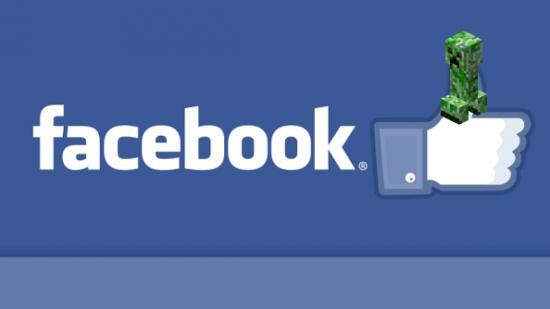The immediate reaction to Facebook’s plans to buy Oculus VR have been hostile to say the least. Hilariously, my Facebook feed is filled with venom: Facebook users condemning Facebook, claiming that it’s ruined yet another thing they liked. And it was as I was chuckling at those comments that I noted Notch weighing in on the matter. I’m not laughing as much now.
A big deal like this was bound to rub some developers the wrong way, and the first victim is an Oculus Rift version of Minecraft. Mojang and Oculus VR were in talks, and now they are not.
A couple of weeks ago, Notch to a trip to the Oculus offices. He had backed the Kickstarter, and this was one of the rewards – though he probably could have gotten an invite regardless of his investment. Chatting about VR and Doom with John Carmack turned to business: Oculus wanted Minecraft.
“Of course, they wanted Minecraft,” says Notch. “I said that it doesn’t really fit the platform, since it’s very motion based, runs on java (that has a hard time delivering rock solid 90 fps, especially since the players build their own potentially hugely complex levels), and relies a lot on GUI. But perhaps it would be cool to do a slimmed down version of Minecraft for the Oculus. Something free, similar to the Minecraft PI Edition, perhaps? So I suggested that, and our people started talking to their people to see if something could be done.
“And then, not two weeks later, Facebook buys them.”
Facebook cares only about getting more users, claims Notch, not games. “Facebook is not a company of grass-roots tech enthusiasts. Facebook is not a game tech company. Facebook has a history of caring about building user numbers, and nothing but building user numbers. People have made games for Facebook platforms before, and while it worked great for a while, they were stuck in a very unfortunate position when Facebook eventually changed the platform to better fit the social experience they were trying to build.”
Notch sees the potential of the social applications of VR: business meetings, watching movies as if you were in the cinema. But he doesn’t work in social media, he wants to make games. He still wants to work with VR, however. “I definitely want to be a part of VR, but I will not work with Facebook. Their motives are too unclear and shifting, and they haven’t historically been a stable platform. There’s nothing about their history that makes me trust them, and that makes them seem creepy to me.”
He’s not just unhappy about the upcoming acquisition from the perspective of someone who was in business talks with Oculus. He’s annoying as a backer: “And I did not chip in ten grand to seed a first investment round to build value for a Facebook acquisition.” One would assume that he pledged 10 grand because he believed in the product and wanted to see it brought to market. Which is still happening. But this does raise an issue with crowd-funding. Those who pledge frequently act like investors. They often have expectations that go beyond what’s laid out in the Kickstarter, and act like they have a stake in the business because their money is involved. But it’s not an investment. Beyond the product – which isn’t even assured – there’s no return.
It would be a shame if more developers swore off the Rift in light of the approaching acquisition. As a consumer rather than a developer, I’m waiting to see how it unfolds. Zuckerberg has already promised that Facebook will be assisting rather than interfering with Oculus VR’s plans for the device in terms of gaming, and despite my distrust of the company thanks to its disrespect for individual’s privacy, I remain at least somewhat optimistic about what it can do for the Rift, at least in regards to the increased resources Oculus will have at its disposal.
